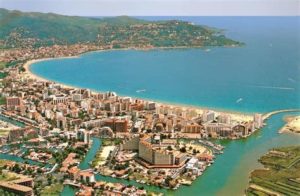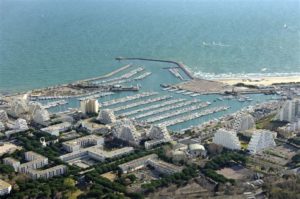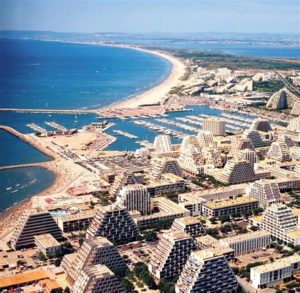Since March 2019, the world has experienced an unusual crisis. Like many sectors, the tourism is severely affected by this pandemic. But more than any other part of the economy, the new change in this sector has been rise. Cities or regions have rediscovered tranquillity or clean air. Many questions arise. The most important is how to travel better.
Type of bad tourism
Tourism is one of the sectors which has evolved the most for 50 years. More the middle class grows, the more tourists arrive at the destinations. Many changes have arise and this is not necessarily good for the environment, local culture and the destination in general.
These are some ways of tourism to avoid in order to travel better.
Mass tourism
Mass tourism appeared after the Second World War. At this time, paid holidays were becoming global and more and more people had time to go on vacation. The first sites of mass tourism were sites in countries which adopted paid holidays. During that time, travel better was not a choice, it was just being tourist for going out somewhere.
Examples of mass tourism destinations:
Two destinations following it to the core.
The Costa Brava in Spain
The Costa Brava is the Mediterranean coast of Spain, It is about 150KM from the border of France. In the 1950s, Franco decided to take advantage of the paid holidays of the France. It developed q a gigantic infrastructure on the Costa Brava to be able to accommodate thousands of tourists. The different style of living standard used to be everywhere, so having budget to luxury accommodation was a great success in Spain. Unfortunately, it destroyed a lot of fragile places. Even today, the primary source of economy in the region is tourism.

Costa Brava, the result of mass tourism
La Grande Motte in France
In view of the growing success of tourism in Spain, France has also launched major tourism projects. In 1965, the Grande Motte project saw the beauty of tourism and developed things. He took a step ahead in tourism. Indeed, the Costa Brava projects have all developed around towns and villages with a history. For La Grande Motte, they drained a swamp and created a complete town. The result is catastrophic on the environment. In addition, la grande Motte is doomed to live only from tourism since its creation had only that purpose. The consequences of this mass tourism is destroying the nature and making the bad impact on environment.
- La Grande Motte
- La Grande Motte
The rest of the world
With the growing success of intra-European destinations, countries around the world have embarked on the race of mass tourism. This movement accelerated in the 70s during the hippie period. Indeed, the trip to distant and unknown lands became the new objective of tourists. Thailand is a perfect example. In the late 1970s and early 1980s, Thailand arrived perfectly into tourism. The sector grew by more than 10% per year between 1985 and 1993. It is now the ninth largest tourist destination in the world. Each year, the country welcomes 39 million visitors which has a population of 68 million.
Problems related to mass tourism
There are a lot of problems associated with mass tourism. Whether environmental, economic or cultural.
The environment
To cope with the massive influx of tourists, things like road, hotel and other infrastructure must be built. Therefore there is an artificialization of the soil. Mass tourism is also very greedy in terms of natural resources such as water or food. We need that a lot in it. Finally, there is the problem of garbage and its treatment with mass tourism.
The economy
Contrary to popular belief, tourism does not create a lot of jobs. They are poorly qualified and therefore generally poorly paid. When farmers decide to build a hotel, the destination loses a farmer, an important profession for the survival of the community. There is a destabilization of the sometimes thousand-year-old balances in the host communities.
Culture
Mass tourism doesn’t like complicated things. It has to be simple to be saleable. This is why everyone thinks that Gaudi is the father of modernism and that he is the only architect of Barcelona. Here is a video which restores the truth.
Another example that shocked me is in Bangkok. There is one street, Khao San road, which is the tourist street par excellence, has only hotels, bars and restaurants. It is the tourist supermarket. A lot of people come to this street. On the other hand, nobody goes to the museum of Thai culture which is just opposite. When I went there, we were the only foreigners and on the register I could see that before us there had been no tourists for a week. It’s a shame because this museum is very well done and we learnt a lot about Thailand and its culture.
Finally, last example is in Istanbul. At the top of the Galata Tower, there is a restaurant where belly dancing shows are offered. It is an art of Arab culture and not of Turkish culture. Travel better is also learning about the cultures of the countries visited.
Volunteering tourism
There I feel that you are perplexed. This tourism has a nice name and cannot be bad. As per principle, yes! but there are more and more drifts.
Volunteering holidays
Some agencies sell you what is called volunteer holidays. The principle is simple. You pay for a trip to meet a community and volunteer. You will be asked to build a school, administer basic nursing care or teach French to young people in the village. So far everything seems perfect.
Let me ask you a question? Are you a nurse, or teacher by profession? Do you think that in two weeks you will have time to learn the culture of the host country in order to be able to help them as best as possible? No.
This is where the problem lies. This kind of trip is for people who need to boost their ego. There will be no follow-up of the actions taken. In addition, these are very expensive trips. Paying 3000 euros for two weeks in Africa, even if you have accommodation is expensive when you are going there for volunteering. Following this, you actually don’t know where the money is spent.
Voila, you have the cocktail of the organized scam that brings nothing to populations in need.
Visiting associations and distributing materials
Then again, you’ll tell me it can’t be bad. Unfortunately it is. Some travel agencies or some tourist guides will suggest that you visit an association during your stay. If you agree, they may ask you to bring back some school clothes or materials to distribute at school. There are two problems with this practice. The first is that we are still in an assistant ship scheme. You don’t fund long-term projects to stop the situation. The second is that it becomes a business. You will be shown to the same school as the other clients before you. The children will be told what to say. The material that comes in excess will be resold to generate even more money for the agency or guide.
You need to know the people first or the situation before helping.
BegPacking
In recent years, a new way of traveling has appeared. This is the begpacking. contraction between the verb to beg which means begging and backpacking, an English term for backpackers.
Begpacking consists of begging in the countries visited in order to be able to continue your journey.
There are several forms of begpacking. Either people beg without offering anything in return, or they ask for money in exchange for products or artistic performances. It is mainly developed in Asia, especially in South East Asia. The majority of people practicing it are rather young (under 30 years old). I saw a father with his begging son in the middle of Chatuchak. To make his business more profitable, he had written on a sign, donate so that I could feed my family and go home.
This practice raises many ethical issues.
Prohibited practice
Selling your talents or products when you have a tourist visa is completely prohibited. So far, the affected countries have reacted very little. If one day the authorities take action, it could have serious consequences for travelers.
Respect for populations in need
This practice is developing in countries where the average income is less than 150 euros. Asking local people for money to travel is indecent. In addition, it is deprived of people who are really in need of income.
Respect for cultural differences
In South East Asian countries, begging is frowned upon. This is not done or when we have no other choice. Seeing Westerners coming with their laptops, phones and cameras rounding up is incomprehensible to locals. Traveling is not a right but a luxury that 95% of the world’s population cannot afford.
Be aware about certain practices is also important for better travel.
Better travel: What does that mean?
How about going back to the travels of the early 20th century? At the time, we traveled to learn and discover. I know we are not all Alexandra David Neel or Vivienne de Watteville.
- Alexandra David Néel
- Vivienne de Watteville
But we can come back to this idea of discovery. Discovery of new cultures and also exploration of oneself.
Better travel means becoming aware of the destinations visited. On an ecological, economic and cultural level.
Guide for good ways of better travel
The guide book is just a suggestion but should not be followed exactly to the point. It’s just a list of suggestions to make your trip abroad as smooth as possible. It is also there to give you a guideline and directions in order to travel better.
1- Prepare your trip abroad
Going on a trip begins long before buying the plane ticket. Preparing for your trip is one of the key steps to better travel. This preparation can take several forms. For example, you can prepare yourself physically if you are going to a mountainous country. You can also prepare for cultural differences. You should feel good about the decisions you have made when planning your stay.
2- Be curious
Above all, don’t limit yourself to one review or one reading. Read guides, travel blogs or magazines. The more you know, the more you will be ready to make this trip a unique experience. You can also contact local associations that help the country you are going to visit. They’ll give you things you won’t find elsewhere.
3- Fight preconceived ideas
This part is the most complicated in the process of preparing for your trip. Misconceptions or preconceived ideas are difficult to detect. Indeed, these are ideas admitted by all. India is dirty, there is only prostitution in Thailand, Colombia is infested with drug trafficking, etc … To fight against this, there is nothing better than reading articles on travel blogs. For example, this article on misconceptions in India can help you understand the truth.
4- Prefer sustainable tourism
Sustainable tourism is which develops an economic activity while having actions to protect the environment and which is fair for local populations. but beware, green washing has also become fashionable. Do not hesitate to question the service providers who display the sustainable tourism logo.
5- don’t make a wish list
There is a difference between making a wish list and wanting to see things. When you make a wish list, you condition the success of your trip on the realization of this list. And if something happens and the list is broken, the trip is ruined. Imagine you are in Paris in April 2019. On your list, there is the visit of Notre Dame. The fire takes place and you can no longer visit it. Your stay will be impacted because our brain gives more importance to negative things than to positive ones. You have seen the Eiffel Tower, Versailles, the Louvre but because of the fire you will not be happy with your trip. Do not make your trip conditional on an absolute visit to monuments or places. Leave room for the unexpected.
6- Less is better
Before the Covid 19 crisis, a travel bulimia had taken hold of the world. A three-day weekend becoming a trip to a neighboring country. A week’s vacation made it possible to fly for long hours. This crisis allows us to refocus on the essential. Bulimic trip is just visiting many places. It will be as quickly forgotten as a meal in a fast food restaurant. If want to travel better and have real benefits from trip, you must plan to travel less. Less often but longer and more intensely.
Hope this article given you lot of information. Share this article as much as possible and let me know in the comment if you agree with everything I said in this article.
Do not hesitate to contact me at info@travelbabavoyage.com if you have any questions.






